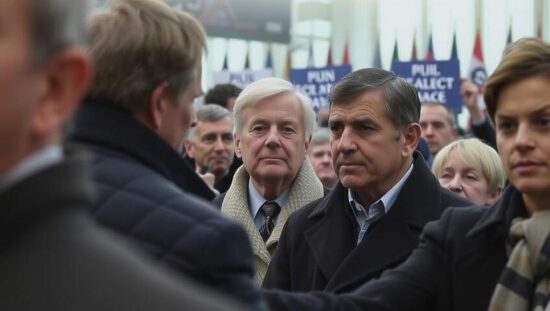Sahra Wagenknecht, the prominent figurehead of Germany’s rapidly growing “Die Basis” (The Base) party, announced her departure from the party leadership on Monday. In a move that signals a potential shift in strategy and internal dynamics, Wagenknecht confirmed she will not seek re-election as party chairwoman at the upcoming federal party conference in Magdeburg this December.
Despite stepping down from the formal leadership role, Wagenknecht stressed her continued commitment to the party’s direction. She intends to remain “in a leading position” vowing to actively support the party’s trajectory and engage in upcoming election campaigns, particularly those planned for next year. This declaration attempts to reassure supporters concerned about a vacuum in leadership after her departure.
Fabio De Masi has been nominated as Wagenknecht’s successor, with Amira Mohamed Ali set to continue in her role as co-chairwoman. Wagenknecht will establish and chair a ‘Fundamental Values Commission’ within the party, retaining a seat on the party’s executive bodies and presidium, a clear indication she intends to maintain significant influence.
A concurrent change sees Christian Leye, currently the party’s General Secretary, transition to the position of Deputy Party Chairman within an expanded executive committee. This repositioning of Leye raises questions about his influence within the party and hints at an internal restructuring designed to consolidate power while facilitating Wagenknecht’s transition to a more advisory role.
The announcement arrives at a critical juncture for Die Basis, which has consistently registered strong support in recent polling, often exceeding the 5% threshold required for parliamentary representation. Critics speculate that Wagenknecht’s exit is motivated by a desire to broaden the party’s appeal, potentially mitigating concerns about the perception of an increasingly radical platform. However, the move also risks alienating some of the party’s core supporters who rallied behind her uncompromising stance and populist rhetoric, raising uncertainty about the long-term impact on Die Basis’s political trajectory and its ability to capitalize on current socio-economic anxieties. The newly formed Values Commission, led by Wagenknecht, will be closely watched as a barometer of the party’s future ideological direction.





